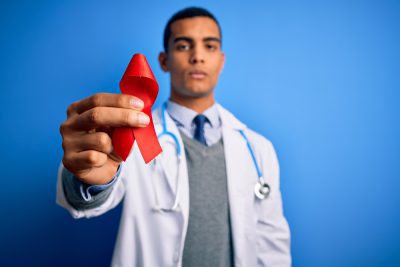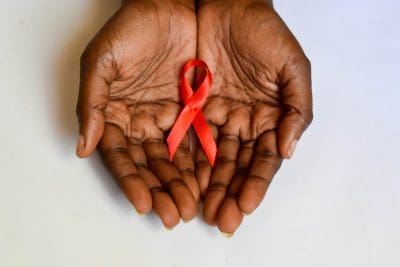HIV is often surrounded by stigma, misinformation and silence. As a result, many people are unaware of the crucial symptoms that accompany it, leading to missed opportunities for early diagnosis and treatment. This lack of awareness can have devastating effects on the immune system and general health.
By identifying HIV symptoms early on, patients have the chance to receive timely medical support, slow down the virus’s progression and significantly improve their quality of life. This article highlights 10 crucial HIV symptoms that are frequently overlooked. Identifying these symptoms could make all the difference for yourself or someone you know. Here’s what you need to know about these early signs and how they can often be mistaken for other conditions.
Fever and night sweats
One of the earliest symptoms that individuals may experience after contracting HIV is a low-grade fever, often accompanied by night sweats. Fevers are the body’s natural response to infections, and they are one of the most missed signs of HIV. Because fever can also result from various other conditions — such as the common flu or even stress — patients often dismiss this as a minor illness.
Subtle yet persistent
The fever associated with early HIV can range from 99 to 102 degrees Fahrenheit and may come and go. Night sweats are particularly intense, often drenching clothes and bedsheets, causing sleep disturbances. If someone is experiencing persistent fever and night sweats without any obvious cause, it’s essential to get tested and seek medical advice promptly.
Fatigue and general weakness
Fatigue is another overlooked symptom that patients tend to misinterpret as overwork or stress. In the early stages of HIV, the body’s immune system works overtime to fight the virus, which can lead to extreme tiredness and feelings of weakness.
Beyond tiredness
This isn’t the typical tiredness that one experiences after a long day. It’s the kind of deep fatigue that makes daily activities feel like monumental tasks. Many brush it off as exhaustion from a busy lifestyle, but it may indicate that the body is under attack from the virus.
Swollen lymph nodes
Lymph nodes are part of the body’s immune system, and they act as filters, trapping viruses and bacteria. When the body is fighting off infections like HIV, these nodes can become swollen and tender, especially in areas like the neck, underarms and groin.
A common sign that’s easily ignored
Because swollen lymph nodes can be caused by many other infections and health conditions, they are often dismissed as being due to a cold or other minor illness. However, if the swelling persists for weeks without a clear cause, it is a sign that should not be ignored.
Skin rashes and lesions
Skin issues are a common symptom in the early stages of HIV. These can manifest as red, flat or raised rashes, often itchy, and they can appear anywhere on the body. Lesions, which may look like small sores, can also occur on the skin, mouth or genital area.
Not your average rash
While rashes are quite common and can result from allergic reactions or other irritants, those associated with HIV are persistent, may not respond to standard treatments and can recur. If unusual or unexplained rashes appear and don’t fade quickly, seeking medical evaluation is vital.
Muscle and joint pain
HIV often causes musculoskeletal issues, including muscle aches and joint pain. This symptom is commonly confused with arthritis, the flu or simply aging. The pain may come and go and can be mild to severe.
Joint and muscle pain in young adults
This pain is not confined to older adults — young, otherwise healthy individuals may also experience it. If the pain seems disproportionate to any physical activity or doesn’t go away with rest, it might be worth discussing it with a health care provider.
Sore throat and mouth ulcers
A sore throat and painful ulcers in the mouth and esophagus are common symptoms of early HIV. While a sore throat is easy to mistake for a common cold or a mild viral infection, in the case of HIV, it tends to last longer and is often accompanied by other symptoms.
Prolonged and painful
If the sore throat persists beyond the usual duration of a viral infection, or if there are recurring ulcers in the mouth, these symptoms could be a red flag for an underlying immune issue like HIV.
Unintentional weight loss
Rapid weight loss without trying can be a symptom of HIV, often known as “wasting syndrome.” This can occur in both the early and later stages of the virus.
When weight loss becomes concerning
It is often one of the more noticeable signs because it may involve losing up to 10% of body weight, accompanied by diarrhea, fatigue or fever. If someone is shedding pounds rapidly without dieting or changing their exercise routine, it’s time to consult a health care professional.
Diarrhea and digestive issues
Gastrointestinal issues like diarrhea, nausea and vomiting are common in HIV patients. These symptoms are often overlooked as they can stem from food intolerances, infections or even stress.
Beyond the usual upset stomach
For HIV patients, digestive symptoms can persist for long periods or become recurrent. Over-the-counter medication may not always provide relief, and if these issues linger for more than a week, a deeper medical evaluation is recommended.
Headaches and neurological issues
Frequent headaches or migraines, along with neurological symptoms such as dizziness, confusion or tingling sensations, may be linked to HIV. The virus can impact the nervous system, leading to these often-dismissed symptoms.
When to seek help
While headaches are a common occurrence and can be due to multiple factors like dehydration or lack of sleep, recurring or persistent neurological symptoms combined with other signs warrant a closer look from a health care provider.
Opportunistic infections and frequent illness
One of the clearest signs of a compromised immune system is frequent illness. Individuals with HIV are more susceptible to opportunistic infections, like pneumonia, tuberculosis and fungal infections, which wouldn’t typically affect a person with a healthy immune system.
The immune system under siege
If someone is falling ill more often than usual or struggles to recover from common illnesses, it could point to a weakened immune response. These recurring infections are a major indicator that the body’s defenses are not functioning properly, which is a hallmark of HIV.
Early detection can save lives
HIV is a virus that thrives on being overlooked, and these 10 symptoms are frequently missed or attributed to less serious conditions. Early detection is vital because it allows individuals to begin antiretroviral treatment as soon as possible, dramatically improving their quality of life and reducing the risk of transmission. If you or someone you know is experiencing any combination of these symptoms, especially if they are persistent and unexplained, seeking medical advice and getting tested is crucial.
By paying attention to these early warning signs and promoting awareness, we can break down the barriers of silence surrounding HIV and encourage proactive health care. Remember, knowledge is power, and in the case of HIV, it can also be the difference between life and death.
This story was created using AI technology.
















